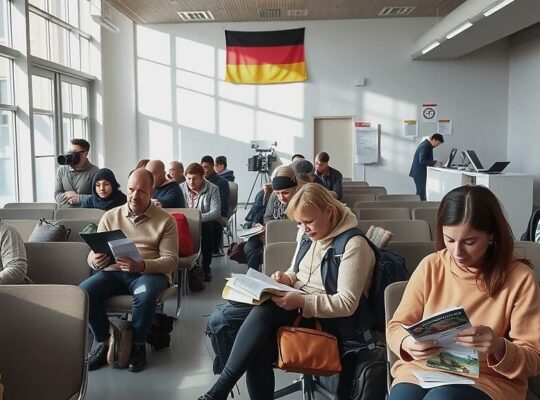German industrial jobs are facing a precarious future, according to a stark warning issued by IG Metall chief, Christiane Benner. In an interview with the Frankfurter Allgemeine Sonntagszeitung, Benner expressed deep concern over a looming rise in job losses, moving beyond the current system of generous severance packages towards a future dominated by compulsory redundancies.
The scale of the industrial decline is already significant. Benner highlighted the loss of hundreds of thousands of manufacturing jobs in the last five years, with the automotive sector alone shedding 50,000 positions within a single year. Critically, she emphasized that this downsizing isn’t solely impacting older workers. “I can name numerous companies where engineers, not nearing retirement age at 61, but as young as 42, are being let go” she stated, painting a bleak picture of the workforce’s vulnerability. These reductions are increasingly affecting younger employees, effectively eliminating the possibility of early retirement for a generation facing an uncertain future.
Benner also vehemently criticized the current political discourse surrounding high rates of sick leave in Germany. She argues that the narrative placing blame on employees is not only inaccurate but also deeply damaging. “It feels like a scapegoat is being paraded through the village, telling people they are to blame for Germany’s economic woes” she said. “People are fearful for their jobs and then they are being told they are constantly getting sick, are lazy and working too little. Workers are constantly being berated. This is unacceptable”. She framed the situation as a dangerous deflection from the real systemic issues contributing to economic stagnation and argued that such rhetoric erodes morale and further destabilizes the workforce. Her remarks underscore a growing tension between government attempts to frame economic challenges as issues of individual responsibility and the lived experience of workers facing job insecurity and systemic vulnerability.












